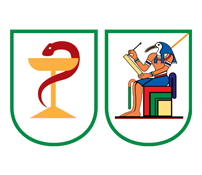Subject Area
Pharmacology and Clinical Pharmacy
Abstract
Background: Biologics have provided enhanced clinical advantages, but at expense of enormous expenditures. The exorbitant expense of biologics was somewhat mitigated by the development of biosimilars. But biosimilars market access is still recessed in many countries including Egypt. To achieve biosimilars market sustainability, countries need to evaluate the health economic barriers that biosimilars face in gaining market access.
Methods: A retrospective budget impact analysis was conducted to compare the cost of biosimilars to that of their reference biologics from Egyptian regulatory perspective over a five-year period (2018-2022). Time series forecasting analysis was conducted to predict the cost savings in the upcoming five years. Finally, the study investigated local stakeholders’ perspective on the biosimilars sustainability through a specially designed online questionnaire.
Results: This study provided insight into the budget impact of biosimilars in Egypt. More than 2.97 billion L.E. savings were achieved upon using biosimilars instead of their originator biologics. The predicted cost savings from biosimilars in the years (2023-2027) would grow to be more than 18.9 billion L.E. Finally, the study determined the four key insights into the policies that are essential to build a sustainable Egyptian market for biosimilars.
Conclusion: The present study suggests that the introduction of biosimilars in Egypt had a positive budget impact. Cost savings are expected to grow, this could be achieved through increased competition and reduced prices
Recommended Citation
Abd-El-Rady, Doaa M.; El-Baraky, Iman A.; and Farid, Samar F.
(2023)
"Utilizing Biosimilars to Help Increase Patients Access and Minimize the Financial Burden of Health Care System in Egypt,"
Bulletin of Faculty of Pharmacy Cairo University: Vol. 61
:
Iss.
2
, Article 8.
Available at: https://doi.org/10.54634/2090-9101.1057
Creative Commons License

This work is licensed under a Creative Commons Attribution-NonCommercial-No Derivative Works 4.0 International License.










Follow us: